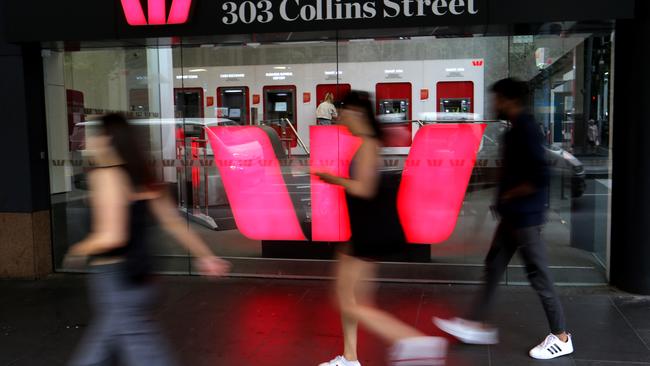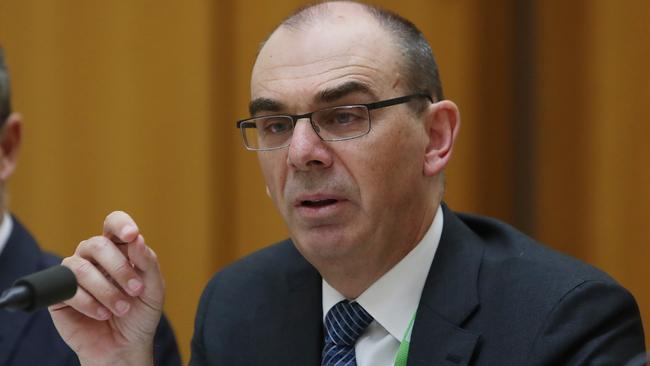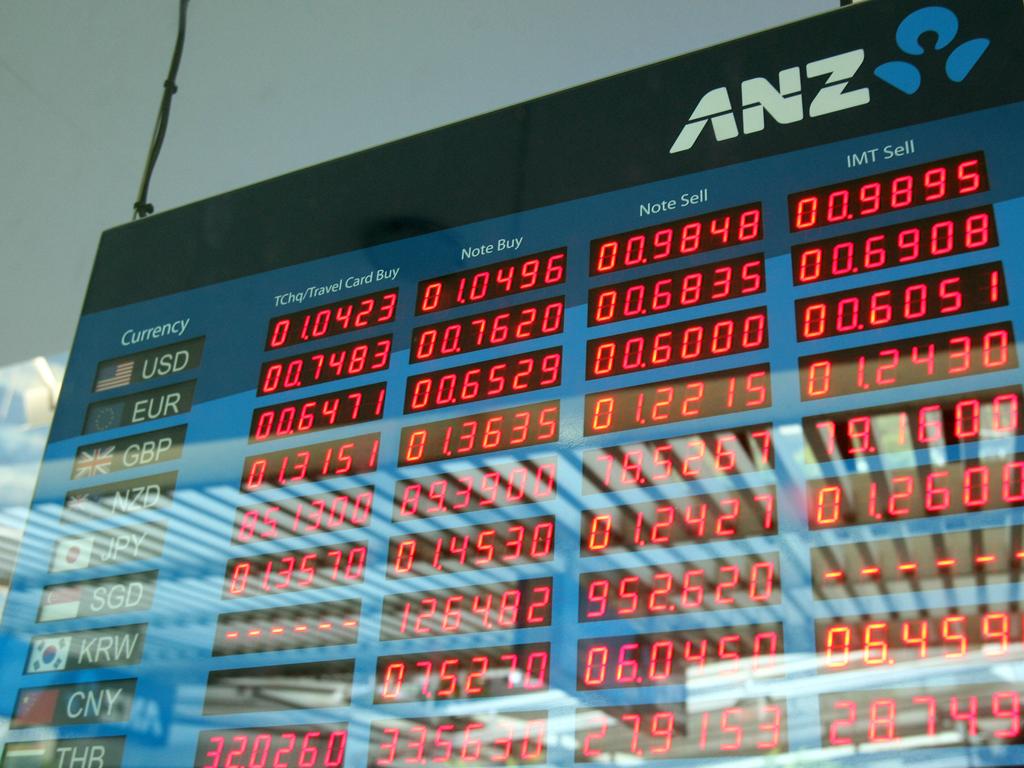APRA tells banks to cut dividend payouts
Investors in banks and insurers are braced for a belting after APRA warned they should consider suspending dividends.

Investors in banks and insurers are braced for a belting on Wednesday after the prudential regulator warned that the companies should “seriously consider” suspending dividends until the fallout from COVID-19 recedes.
Australian Prudential Regulation Authority chairman Wayne Byres also said in a letter to boards, sent after the market closed on Tuesday, that if they decided to declare dividends based on robust stress-testing results discussed with APRA, the payments should be at a “materially reduced level”.
“Dividend payments should be offset to the extent possible through the use of dividend reinvestment plans and other capital management initiatives,” Mr Byres said. “APRA also expects that boards will appropriately limit executive cash bonuses, mindful of the current challenging environment.”
The strongly worded directive came only days after three of the four major banks — Westpac, National Australia Bank and ANZ — ruled off their books for the six months to the end of March. Bank of Queensland will announce its interim result on Wednesday for the February 29 half year.
APRA’s announcement, which reflects concerns about a likely blowout in bad debts as the economy grinds to a halt, also followed advice from the regulator last Thursday that the boards of regulated entities retain discretion over dividend payments.
This was in response to the Reserve Bank of New Zealand, which ordered the NZ subsidiaries of the big four to stop paying dividends to their Australian parents.

APRA warned at the time that its open position on dividends could come under review.
The Council of Financial Regulators considered the issue at a meeting on Friday, leading APRA to give it further thought.
With interest rates at rock-bottom levels, the regulator’s move will mean more financial pain under either scenario — a suspension in dividends, or a significant reduction in their size.
The move came as ratings agency Fitch late on Tuesday cut the credit ratings on the big four banks to single “A”, from “AA”, warning about prolonged economic fallout from the coronavirus downturn leading to a spike in lending losses. A cut in credit rating marginally pushes up borrowing costs for the nation’s banks. S&P and Moody’s retain a “AA” rating on the big four banks.
“We expect that a portion of businesses will fail to restart once the recovery begins and some households will not be able to resume debt repayments after the repayment holidays provided by the banks,” Fitch senior director Tim Roche said.
Credit Suisse bank analyst Jarrod Martin said that a suspension of dividends by the banks would be a better outcome, because a dividend cut would imply a permanent re-basing of shareholder payments.
“We note recent moves by European, UK and NZ regulators to recommend the suspension of bank dividends,” Mr Martin said in an earlier note, before the APRA announcement.
“We can see the rationale in the temporary suspension of dividends until the peak in the curve is known, but believe regulatory leadership on this decision, rather than individual consideration, to be the best for sector confidence.”
Another analyst predicted an investor backlash to APRA’s announcement when the market reopens on Wednesday.
Meanwhile, brokerage UBS tipped dividends could plunge by up to 40 per cent this year and might even be suspended if the current economic downturn deteriorated or lasted longer than expected.
ANZ, Westpac and NAB will each slash their interim and final dividends to just 50c a share this year, while CBA, which reports on a different cycle to the other majors, will cut its final payout to $1.60 a share and next year’s interim dividend to $1.40, the analysts led by Jonathan Mott said in a note on Tuesday.
Mr Byres said in his letter that APRA had recently made adjustments to regulatory requirements and timetables, including the ability for entities to use capital buffers if needed.
This action was taken because the financial services industry needed to support the economy through the dislocation caused by the coronavirus pandemic.
APRA expected banks and insurers to limit shareholder distributions in the months ahead, and instead use buffers and maintain capacity to lend and underwrite insurance.
“This includes prudent reductions in dividends, taking into account the uncertain outlook for the operating environment and the need to preserve capacity to prioritise these critical activities,” Mr Byres said.
He said capital management decisions were forward-looking, and could be “very challenging” in the current environment of significant uncertainty. The regulator was therefore providing boards with further guidance.
In the next couple of months, they should take a forward-looking view on the need to conserve capital and use their capacity to support the economy.
They should use stress testing to inform those views, and consider plausible downside scenarios, to be updated as conditions evolved.
Finally, boards should undertake prudent capital management action, on a pre-emptive basis, to ensure they had the confidence and capacity to continue to lend and support their customers.
Mr Martin said in his note to clients that the sector faced significant earnings pressure, yet the market was pricing the stocks at less than their net tangible assets as if there were balance sheet issues.
Based on Credit Suisse analysis, the issue was confined to earnings, with bad debts the key variable for the sector. However, even under a 2008 financial crisis scenario, or the 1992 recession, the banks still remained profitable.
“In fact, it would require bad debts at a level of 160-170 basis points (of loans) for banks to have zero profits,” Mr Martin said.
“Even under the most extreme scenario of 300 basis points of bad debts (the absolute level of bad and doubtful debts in 1992), the banks, while loss-making, would still be above their common-equity tier-one capital regulatory minimum.”
Given the increased shutdowns, Credit Suisse said it had increased its bad debt charges to peak at 55 basis points (in the second half of 2020 and the first half of 2021).
The investment bank also incorporated a tail of 30-35 basis points in 2022.
This had resulted in 15-20 per cent near-term downgrades and about 10 per cent in 2022.




To join the conversation, please log in. Don't have an account? Register
Join the conversation, you are commenting as Logout